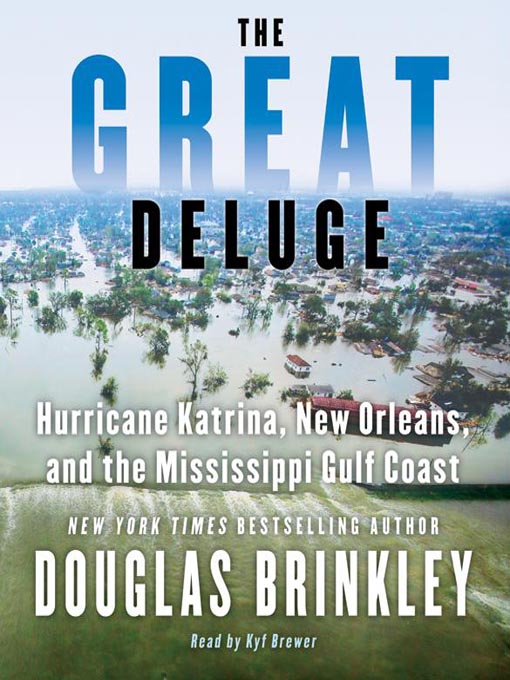
The Great Deluge
Hurricane Katrina, New Orleans, and the Mississippi Gulf Coast
کتاب های مرتبط
- اطلاعات
- نقد و بررسی
- دیدگاه کاربران
نقد و بررسی

Douglas Brinkley brings back the devastation wrought by Katrina and the botched response to it. He outlines the warnings, the storm itself, the collapse of the levees, and the tragic aftermath. Not much additional drama is needed, and Kyf Brewer doesn't provide it; rather, he reads in a reportorial style, making sure you get every word. He shows warmth for the many heroes, such as the unnamed boatmen who risked their lives rescuing people, as well as contempt for Mayor Nagin, who hid out in a high-rise. He also brings home the stench created by heat, carcasses, sewage, and rotting food. Just when we might let our memories of this tragedy dim, this well-done abridged version is a great reminder. J.B.G. (c) AudioFile 2007, Portland, Maine

May 8, 2006
Historian Brinkley (Tour of Duty
, etc.) opens his detailed examination of the awful events that took place on the Gulf Coast late last summer by describing how a New Orleans animal shelter began evacuating its charges at the first notice of the impending storm. The Louisiana SPCA, Brinkley none too coyly points out, was better prepared for Katrina than the city of New Orleans. It's groups like the SPCA, as well as compassionate citizens who used their own resources to help others, whom Brinkley hails as heroes in his heavy, powerful account—and, unsurprisingly, authorities like Mayor Ray Nagin, Gov. Kathleen Blanco and former FEMA director Michael C. Brown whom he lambastes most fiercely. The book covers August 27 through September 3, 2005, and uses multiple narrative threads, an effect that is disorienting but appropriate for a book chronicling the helter-skelter environment of much of New Orleans once the storm had passed, the levees had been breached, and the city was awash in "toxic gumbo." Naturally outraged at the damage wrought by the storm and worsened by the ill-prepared authorities, Brinkley, a New Orleans resident, is generally levelheaded, even when reporting on Brown's shallow e-mails to friends while "the trapped were dying" or recounting heretofore unreported atrocities, such as looters defecating on property as a mark of empowerment. Photos.

August 15, 2006
Brinkley is a historian, not a journalist used to word counts, which may explain how he managed to take 624 pages to cover the shortest chronology (August 27 through September 3, 2005) of these narratives. For historical and scientific context, readers should turn to McQuaid and Schleifstein, but Brinkley's impressive accumulation of details within the eye of the disaster results in a chronicle that has undeniable power, mitigated somewhat by the intrusion of clichés and his own biases.
Copyright 2006 Library Journal, LLC Used with permission.

























دیدگاه کاربران